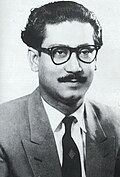Content
The book is written in an engaging style, and treats the coups/assassinations and their plotters in great detail. A section of black-and-white photographs depict the slain Sheikh Mujibur Rahman, the slain General Ziaur Rahman, plotters behind various coups, politicians and some photocopies of documents and an official gazette related to the many coups this South Asian country has suffered. In its jacket, the book promises references who killed Sheikh Mujibur Rahman (the first prime minister of Bangladesh); who was responsible for the jail killings in Bangladesh; and how General Zia was assassinated. Written in 13 chapters and an index, the book also contains a list of officers convicted by General Court Martial and hanged for the assassination of President Ziaur Rahman.
In a November 1985 preface to the book, Mascarenhas writes: "This is a true story; in many ways a text book of Third World disenchantment. On the 16th of December, 1971, the state of Bangladesh (population 70,000,000) was born at the end of a nine-month liberation struggle in which more than a million Bengalis of the erstwhile East Pakistan died at the hands of the Pakistan army. But one of the 20th century's great man-made disasters is also among the greatest of its human triumphs in terms of a people's will for self-determination."
This page is based on this
Wikipedia article Text is available under the
CC BY-SA 4.0 license; additional terms may apply.
Images, videos and audio are available under their respective licenses.


